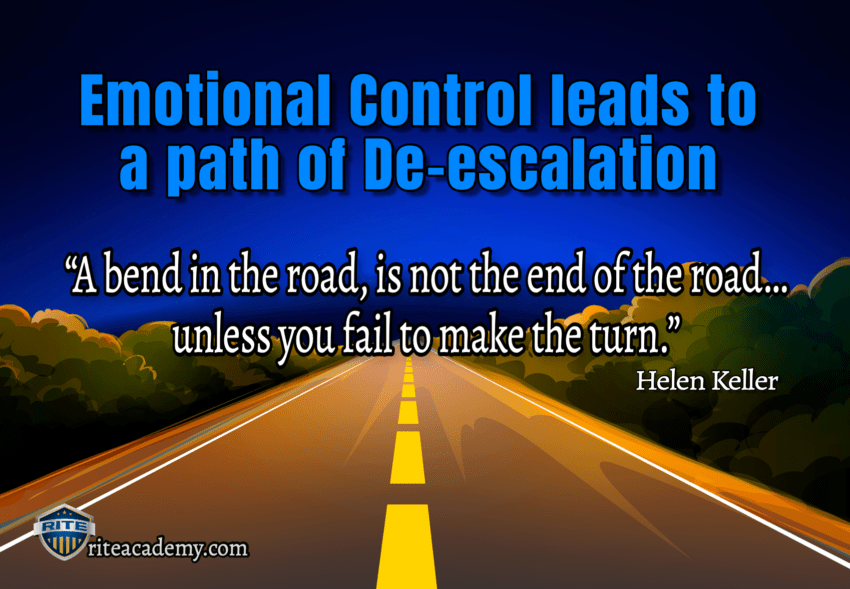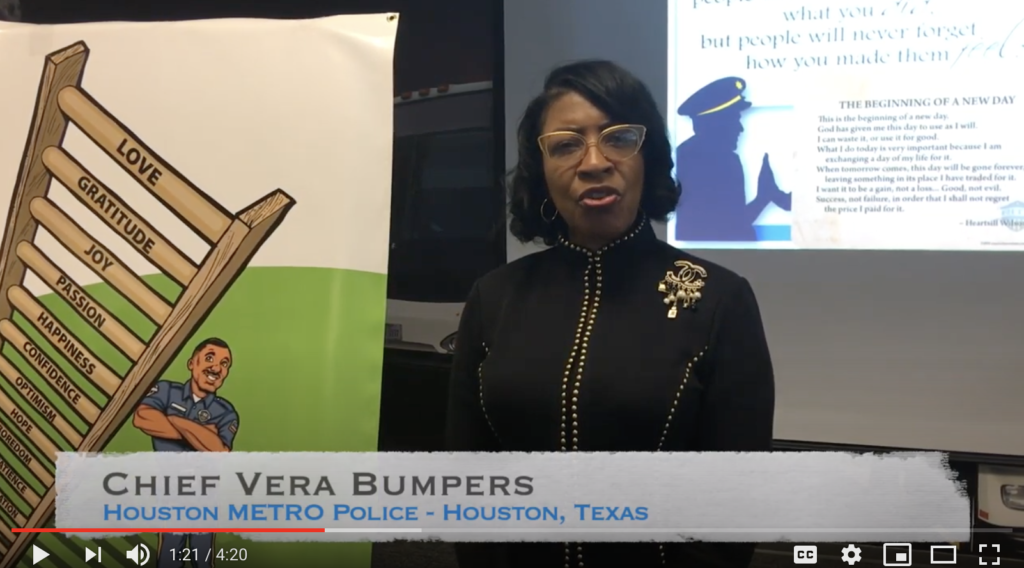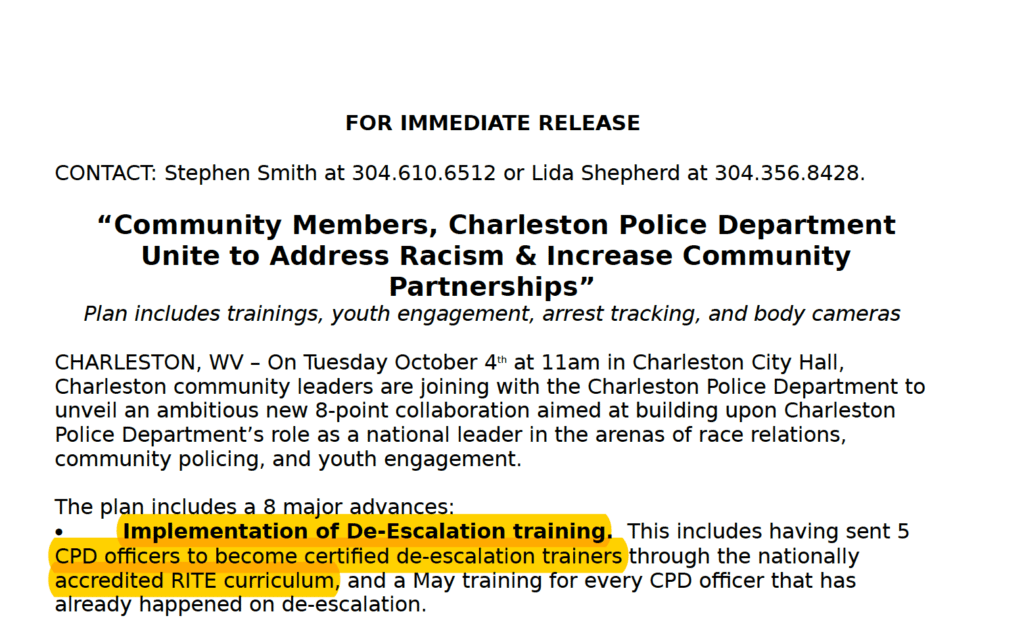If you have ever been ANGRY about something longer than one day… this is for you!

When we carry around negative thoughts for too long the burden can be unbearable. For those of us in public service, negative experiences are inevitable.
It’s like carrying a backpack of heavy rocks everywhere we go.
These negative things can ‘emotionally control’ us, impact our lives well into the future, and bring us down into a negative space that seems impossible to get out of.
Emotional health issues are the biggest risk to public service officer’s well-being. RITE’s Emotional Response Training (ERT) help officers learn to recognize signs and symptoms of stress, PTSD, and suicidal thoughts, and offer ways to build up positive mental health.
Spiraling out-of-control with blame, anger, and frustration will negatively impact your daily life, your agency, and even the community. You can choose to waste 60% of your workday focused on toxic negative banter, or learn to walk away.
How you de-escalate your own emotional control, when life negatively impacts you is the key to your future success.
“Life can sucker punch you when you least expect it. How you handle yourself under stress, is what matters.” ~ Linda Webb
One of those Days…
Ever start your day stubbing your toe? And then maybe the hot coffee burns you, or you spill it on your uniform?
Your self-talk sounds like, “Great, what else can go wrong today?” And before you even catch the words coming out of your mouth, bad things continue to happen over, and over, and over. Your day can turn into a ‘bad day’ just by thoughts you choose.
Life can often feel like it’s spiraling out of control. If you learn to stop long enough to look within, you may realize you can stop it. It is a choice to learn to use Self-Emotional Control techniques.
Emotionally controlling yourself is the first step towards de-escalating any situation that is in front of you, because you can choose to OWN your self-control!
watch How you handle conflict
Be aware of how you act after not getting that promotion. Your coworkers and executive leaders will be watching how you handle that situation.
If you go around the agency speaking negatively, spreading rumors and gossip, then you are showing a lack of self-emotional control. Having a bad attitude can directly impact whether you will get promoted in the coming years or stay where you are.
The key to mastering ‘self-emotional control’ takes awareness, planning, and practice, but most of all a willingness work on yourself. How you quickly adjust when life throws you unexpected curve balls in your path is that key.
De-escalate Yourself
Learn to de-escalate your own negative emotions in the moment. Like an athlete at the free-throw line (in Basketball), take a breath, give yourself time to collect better thoughts, and then GO. When you are mad, taking a moment to breathe, to collect your thoughts is easier than you think.
Definition of SELF Emotional Control: The ability to keep your disruptive emotions and impulses in check, to maintain your effectiveness under stressful or even hostile conditions.
Five Steps for Improved Self-Emotional Control:
- Start to become AWARE of your emotions
- Be present and acknowledge what you feel – In that moment
- Care enough to acknowledge your situation (without complaining)
- Change direction and Move Forward
- Like every top athlete… Practice, Practice, Practice
In public service you cannot de-escalate other situations if you can’t learn de-escalate yourself and learn what makes you tick.
“Sometimes, you just can’t get out of your own way!”
People who can’t get out of their own way, are usually complaining and not practicing self-emotional control. They are escalating the situation by trying to get others to be mad with them.
In teaching the RITE Program to public service professionals around the country, one of the first lessons we ask is, “Do you spend more time at the Top or Bottom of the RITE Ladder?” It is quite the eye-opener for most.
Admitting you’ve been living at the BOTTOM… is when you can start to see change.
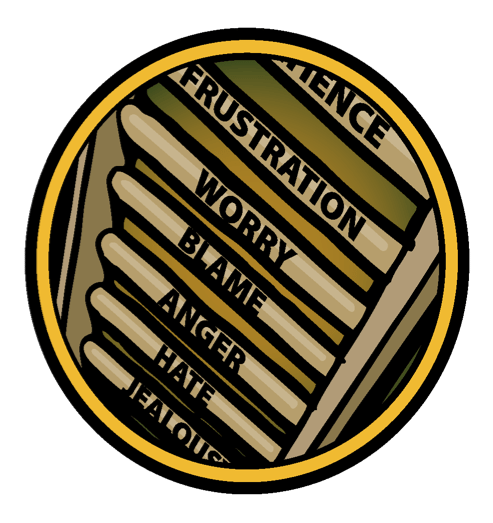
We all have the ability to change our negative emotions. Without awareness, nothing changes. When you acknowledge where you are, you start to see where you want to be. In our Daily Check-in Lesson, officers learn the value in seeing how they go up and down their own Ladder throughout the day.

TOP of the Ladder, where Love, Gratitude, and Joy give us positive emotional energy. Opportunity lives at the TOP!
When you spend more time at the ‘Top of the Emotional Ladder’ you will be able better connect with coworkers, and community members. It’s like traveling in an airplane and you hear, “put your oxygen mask on first, before you can assist others.”
How many times in public service have we seen coworkers and zone partners escalate the situation due to their own self-interest, or they themselves were not in a good space-of-mind?
Having superior self-emotional control means you value yourself, as well as others. Because of this, you understand the importance of de-escalating every situation through emotional self-control.
Emotional Control means that you will be able to see many bends, and turns in the road. Being able to adapt, pivot, and adjust your way to future success, opens you up to many opportunities.
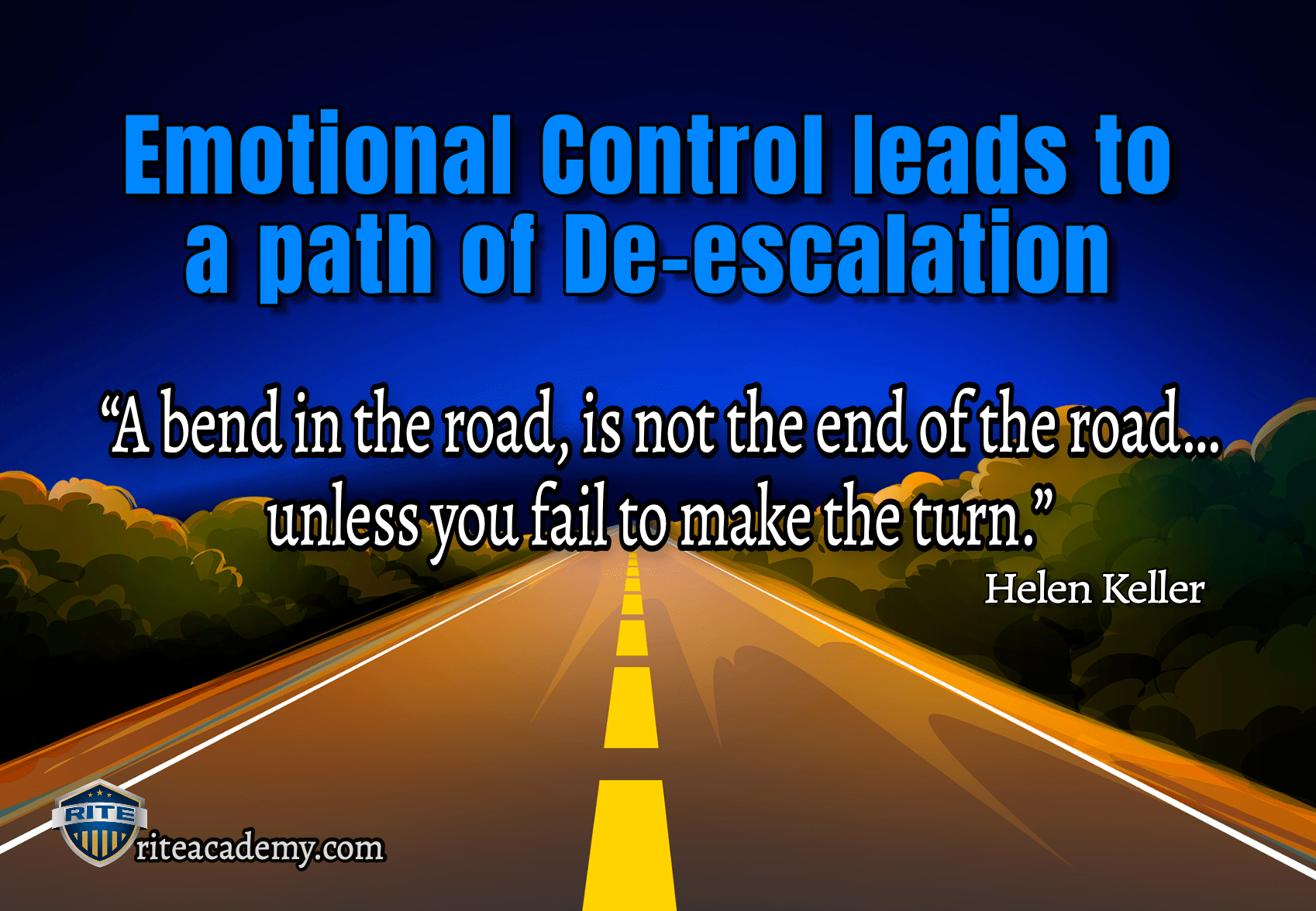
RITE’S cognitive imprint tools, like the LADDER, help employees improve their Emotional Control which lead to better outcomes overall. Many agencies have improved their professional workplace and accountability using RITE classes.
About RITE
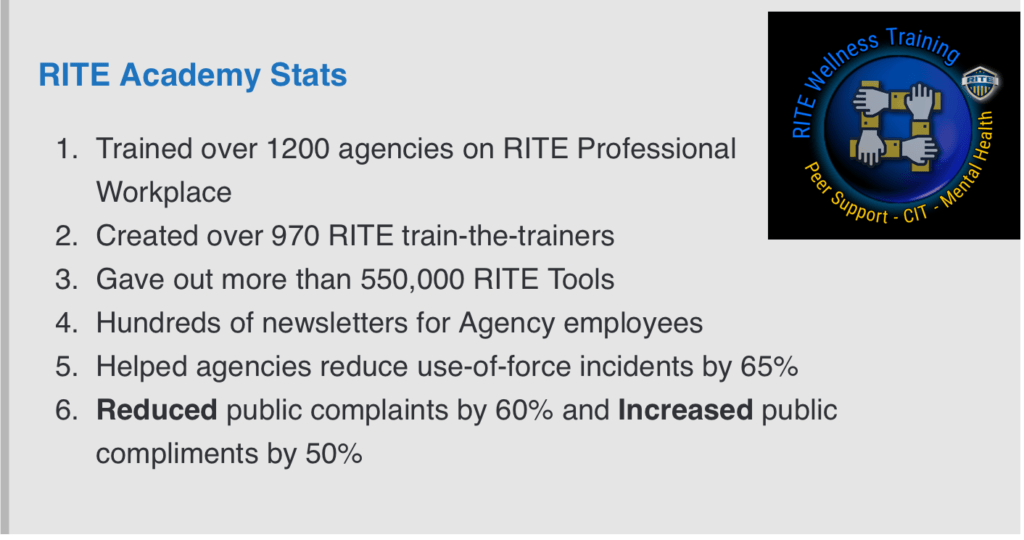
RITE agency tools include employee tool kits, training banners, departmental posters throughout the agency, roll call reminder cards, and monthly newsletters to employees.
Next Trainers Class: April 16-17, 2024
